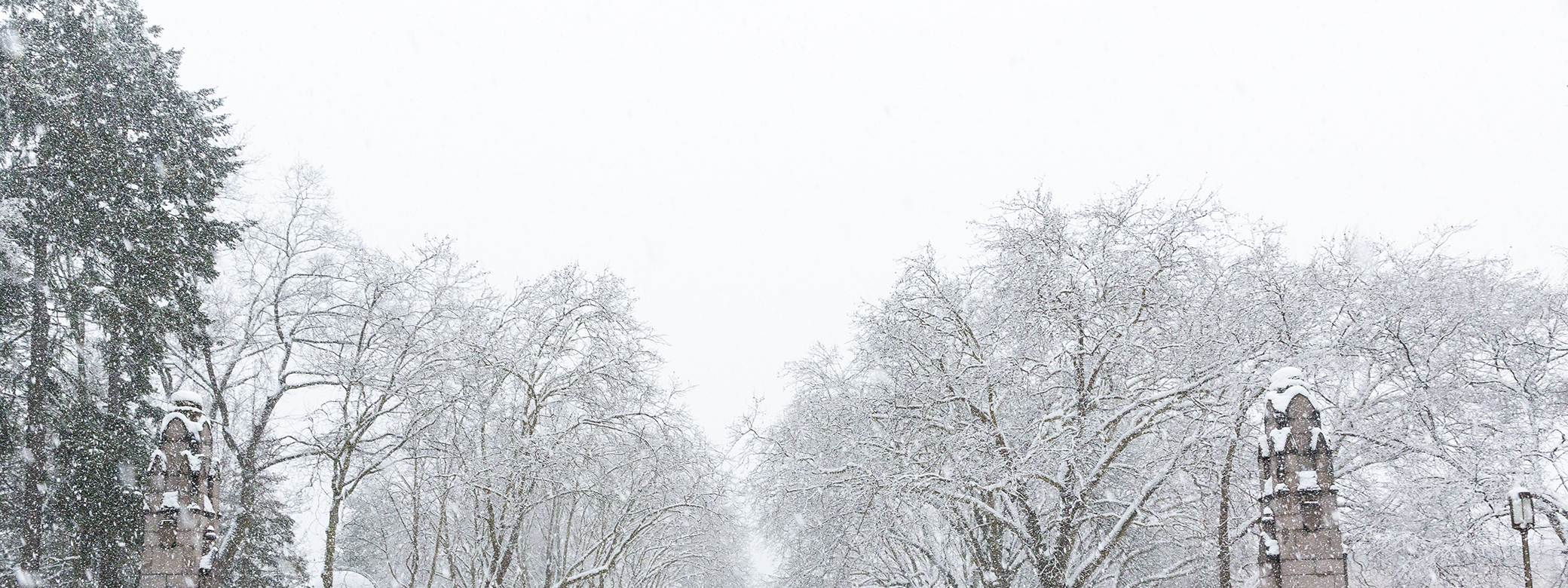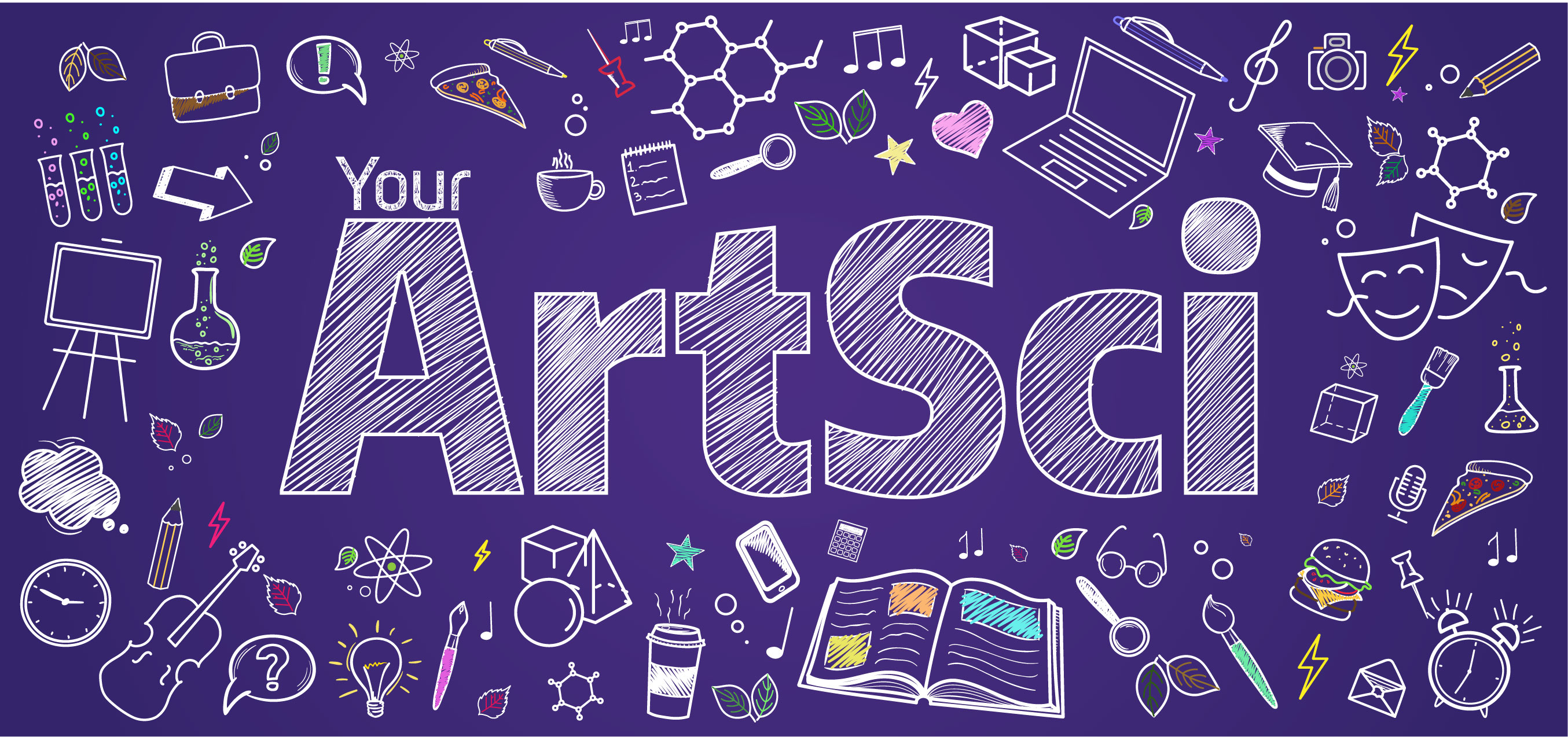
As you think about winter quarter 2025 course registration, check out these unique Arts & Sciences offerings. They’re open to all students, have no prerequisites, and fulfill Areas of Knowledge requirements as noted.
Our Contemporary World
Women & Society
On the Page or Screen
Historical Perspectives
The Arts
Science for All
More Cool Courses

Our Contemporary World
Conflict and Cooperation in Contemporary Europe
JSIS A 301 / POL S 389
Explore the dynamic changes shaping Europe today. This course dives into the social, political, cultural, and economic shifts across the continent, spotlighting the European Union, Scandinavia, and post-Soviet Eastern Europe. We’ll unpack the big trends driving change, from government decisions to cultural movements, and how they affect life in modern Europe.
Sabine Lang, International Studies
5 credits, SSc
Can Democracy Be Saved?
POL S 299A
(listed as “Special Topics in Political Science”)
Democracy is under threat in the US and elsewhere, leading to widespread concern about human rights, election legitimacy, and violence. This class considers whether democracy is worth saving and what, practically, can be done to save it, with a focus on real world problems and solutions. By exploring historical struggles over democracy, the course shows how regular people can make a difference.
George Lovell, Megan Francis, Political Science
5 credits, SSc
Geography of Cities
GEOG 277
Explore the economic, cultural, social, and political dynamics of cities, including their location, functions, and internal structures. Topics include economic restructuring; suburbanization and urban sprawl; urban planning; inner-city gentrification; and how issues of class, race, and gender are embedded in the geographies of cities.
Chrystel Oloukoï, Geography
5 credits, SSc, DIV
Sports & Diplomacy
JSIS B 200
Sports have always played a big role in shaping political relationships around the world. From ping pong and Olympic hockey to soccer’s World Cup, international sports are tightly connected to global politics. This course looks at how sports influence diplomacy and matter in the world of international relations, introducing key ideas from diplomatic theory and real-world examples of sports diplomacy across different times, cultures, and political situations.
Danny Hoffman, International Studies
5 credits, SSc
Environmental Sociology
SOC 379 B
Explore the ways social relationships, political economies, policy processes, cultural practices, and demographic trends of human populations shape their relationship to the environment. Learn how processes like urbanization, climate change, and technological development relate to one another, how they exacerbate problems like social inequality, and what it means to try to make decisions in a changing world.
Patrick Greiner, Sociology
5 credits, SSc
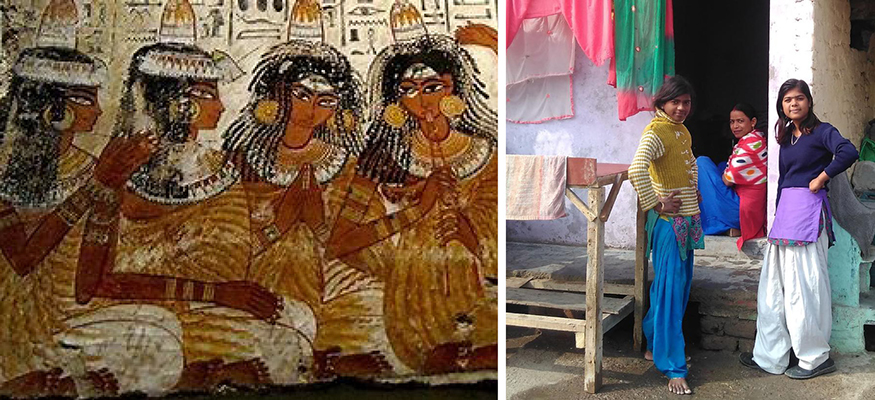
Women & Society
Women and International Economic Development
GWSS 345 / ANTH 345 / JSIS B 345
Interested in untangling the messy relationships between gender, sexuality, and international economic development? We’ll look at how feminists — scholars and organizations — are transforming the ideas and structures that lead to the inequitable distribution of resources, well-being, and opportunity. The class will meet practitioners working on land rights, education, credit, health, and sustainable development for girls, women, and non-binary people in the global South.
Priti Ramamurthy, Gender, Women & Sexuality Studies
5 credits, SSc, DIV
Asian American and Pacific Islander Women
AAS 392 A / GWSS 392 A
Explore the intersection of race, ethnicity, gender, class, and sexuality in the lives of Asian American and Pacific Islander (AAPI) women, including how forces shaped or were shaped by these women. Learn what powerful AAPI women did to advocate and protect their human rights in spaces that tried to minimize their existence. Complacency was not in their DNA!
Jennifer Zheng, American Ethnic Studies
5 credits, SSc, DIV
Women in the Ancient Middle East
MELC 308A / MELC 508A
Priestess, merchant, ruling queen, weaver, potter, legend-writer — the women of the ancient Middle East were all these things. How were they viewed within their societies? How did they see themselves? Explore the experiences of women at all levels of ancient society — from Enheduanna, writer and priestess, to the hard-working tradeswomen of Old Assyria — and how they were involved in religion, politics, and the economy.
Kathryn Medill, Middle Eastern Languages & Cultures
3 credits, A&H, SSc, DIV
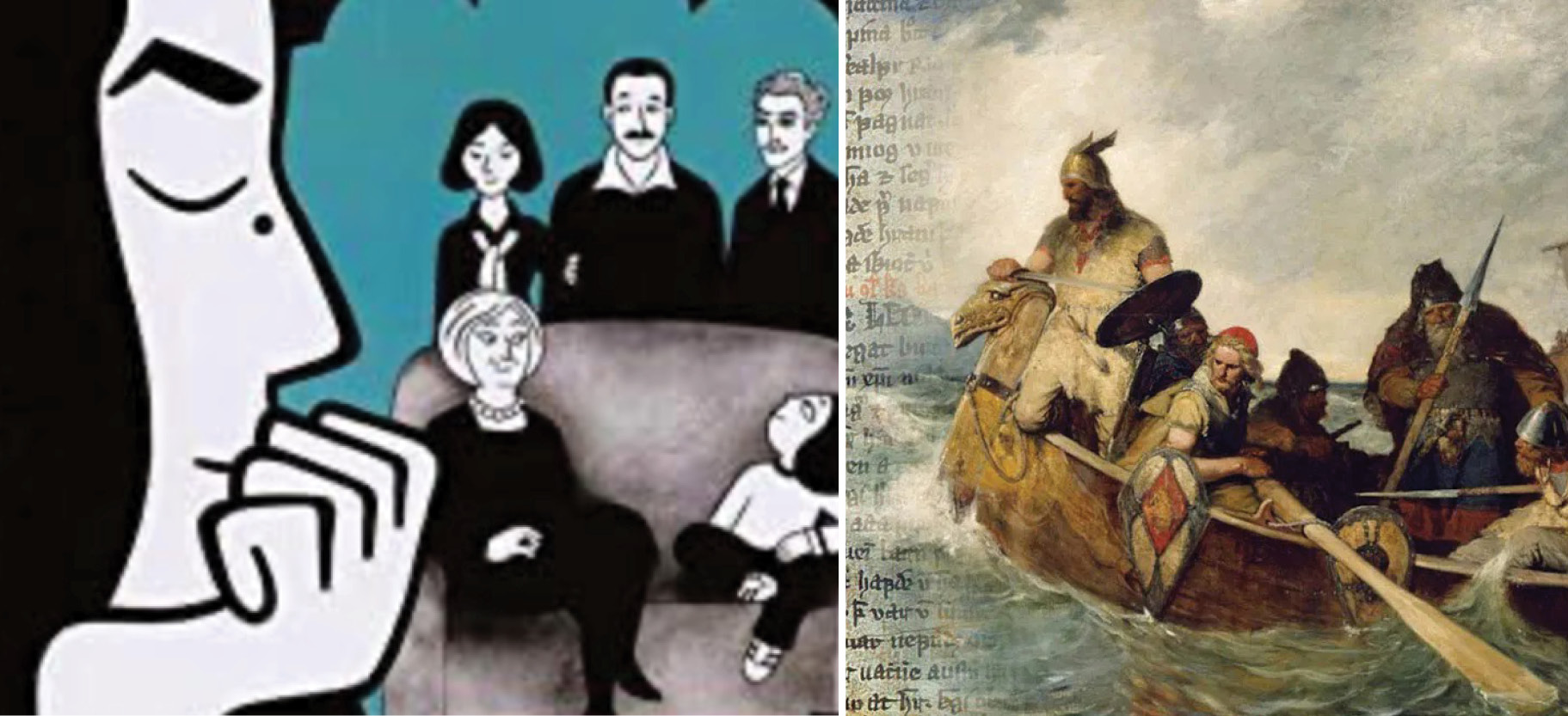
On the Page or Screen
The Middle East Illustrated: Verbal and Visual Storytelling in Graphic Novels
GLITS 314 C / TXTDS 401 C / MELC 286 A / MELC 596 B
(listed by various course names)
Learn how graphic novels portray the complex and diverse cultures of the Middle East. Explore themes like diversity, Orientalism, and historical representation through close readings, discussions, and creative projects, with options to include films, video games, and anime. The creative exercises — with the opportunity to incorporate films and video games — make this a dynamic course for those interested in storytelling, media, and cultural studies.
Selim Sırrı Kuru, Department of Middle Eastern Languages and Cultures
5 credits, A&H, SSc
Underworlds
GLITS 251 A / RUSS 260 A / C LIT 251 C
(listed by various course names)
Underworlds are both real and metaphoric: subways and coalmines, Hades and Hell, criminal subcultures, political undergrounds, horror-movie basements, and windowless office cubicles. Stories of these underworlds address the most profound questions of our lives: what happens after we die? Where do we come from? Where are we going? What are our responsibilities to our world, each other, and ourselves? Examine real and metaphoric underworlds in literature and films about the afterlife, the heroic journey, guilt, grief, violence, and redemption.
Barbara Henry, Slavic Languages and Literatures
5 credits, A&H
From the Alamo to Cyberspace: Exploring the Evolution of Chicano Film and Narrative
CHSTU 332 A / GLITS 314 B / C LIT 357 A
(listed by various course names)
This course provides a historical overview of the evolution of Chicano culture through film, as we critically examine the portrayal and self-portrayal of Chicanos in film and selected works of narrative. Taught in English.
Lauro H. Flores, American Ethnic Studies, Spanish & Portuguese Studies
5 credits, A&H, SSc, DIV
Journeys of Nostalgia: Writings By and For Immigrant Memories and Identities
CHID 320 A
(listed as “Seminar in Public Writing: Writing for Good”)
For migrants, nostalgia is remembrance and longing for past lived experiences. These memories can be practical reclamations of power and history in the midst of histories of propaganda and inaccurate representations in media. In this course, we will explore mis/constructions of immigrant identities throughout historical and contemporary media, and ask how communities can practice power reclamation through art and museum exhibits, oral histories, journalism, creative writing, academic writing, and film.
Sarah Nguyễn, Information School
5 credits, A&H
Sagas of the Vikings
SCAND 270 A / GLITS 252 B / C LIT 252 B
Learn about Icelandic sagas and poetry about Vikings in the context of thirteenth-century society. We will explore some of the greatest literary works from the medieval period, acquire skills in Old Norse textual criticism, and discuss a range of themes including the environment, mythology, religion, the supernatural, gender, and social power.
Timothy Bourns, Department of Scandinavian Studies
5 credits, A&H
Introduction to Japanese Cinema and Media
JAPAN 325
In this introductory survey course, explore the cinema of Japan from the silent era to the present, including anime, with a focus on culturally specific historical, industrial, and aesthetic movements throughout the history of Japan’s film industries.
Davinder Bhowmik, Asian Languages & Literature
5 credits, A&H, DIV
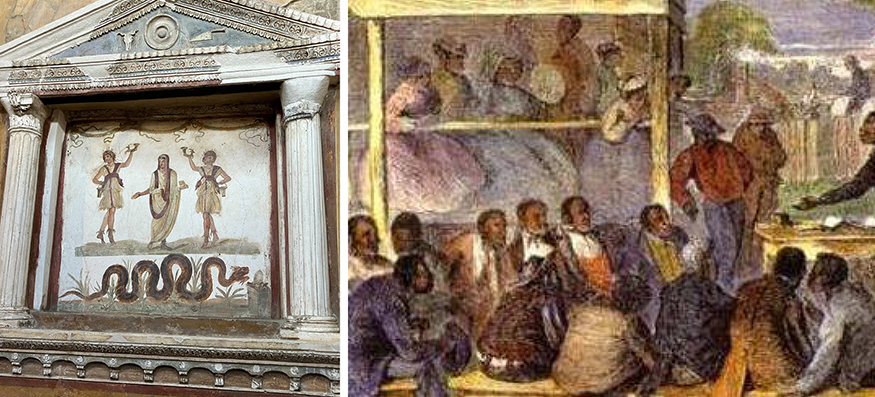
Historical Perspectives
The United States During the Era of Civil War and Reconstruction
HSTAA 241 / AFRAM 241
Guided by W.E.B. Du Bois' Black Reconstruction, this course examines the history of the American Civil War and Reconstruction through the lens of African American social history, beginning with the US government’s abolition of the Atlantic slave trade in the first decade of the 19th-century and concluding with the expansion of Jim Crow laws and policies in the late 19th-century. Learn how ideas about race, gender, class, and freedom were challenged and reshaped during the Civil War and how legacies of this persist today.
Bianca Dang, History
5 credits, SSc, DIV
Fashion, Nation, and Culture
ITAL 260 A / ART H 260 A / JSIS A 260 A
Delve into Italian culture, focusing on fashion and manners from the late Middle Ages to today. Learn about the development of corsets, the invention of the three-piece suit, stiletto heels, makeup, beauty pageants, and much more, while exploring common assumptions about nation, gender, clothes, and manners — and how fashion drives social change, identity, cultural norms, and more.
Susan Gaylard, French & Italian Studies
5 credits, SSc, A&H
Pompeii: A Time Capsule of Ancient Life
CLAS 347 / ART H 347
Explore ancient graffiti, skeletal remains, everyday objects, and humble and world-class art to learn about the men, women, children, and enslaved residents of ancient Pompeii. This course immerses students in the everyday world of Roman antiquity, from toilets to temples and everything in between.
Sarah Levin-Richardson, Classics
5 credits, A&H, SSc, DIV
History of the Digital Age
HSTAA 317
Explore the history of America’s digital age, including the evolution of the computer hardware and software industries from the Manhattan Project and mainframes of the 1940s to the social media and software giants of today. This course will cover the historical origins of American technology companies and regions, trace the impact of digital technologies on global business and society, unearth the human stories and political histories behind digital tech, and historicize and contextualize today’s debates about digital technologies and platforms.
Margaret O'Mara, History
5 credits, SSc
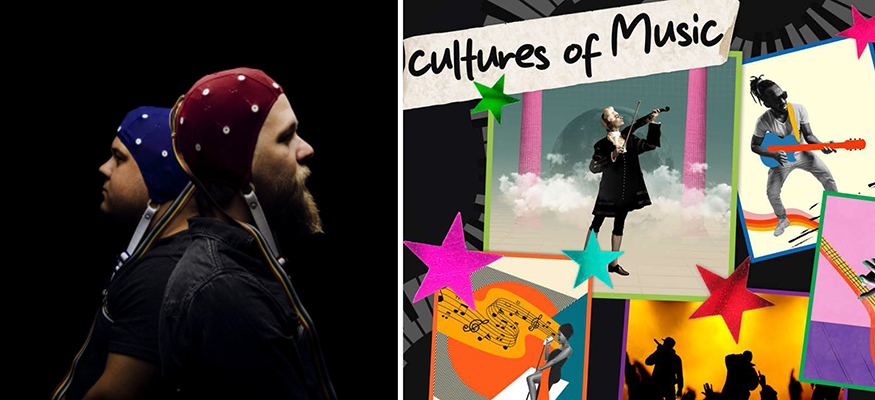
The Arts
Art, Brain & Hallucination
DXARTS 490A
(listed as “Special Topics in Digital Arts and Experimental Media”)
Explore the intersections between art, imagination/hallucination, and neuroscience. Led by faculty from DXARTS and UW Neuroscience, this course will cover a range of topics about brain functions and their relationships to the creation and perception of art. Students will also learn about EEG, EMG, and other devices that are part of the DXARTS Brain Lab and create experimental projects based on the various brain functions that will be explored.
Richard Karpen, DXARTS; Thomas Deuel, DXARTS/Swedish Neuroscience Institute; Eberhard Fetz, DXARTS/Physiology & Biophysics
5 credits, A&H upon request
Arts of Africa
ART H 205
Learn how the environment, the art market, colonialism, and the arrival of Islam and Christianity shaped art-making in Africa from medieval times to today. Students will gain deep insights into a broad range of African aesthetic traditions and phenomena, including body arts, sculpture, masquerades and performance, architecture, painting, and photography. Class activities include a staged trial and curatorial exercises.
Jennifer Baez, Art History
5 credits, A&H, W
Cultures of Music
GERMAN 286 / C LIT 251 B / GLITS 251 B
(listed by various course names)
Music is often claimed to be a universal language that transcends cultural and national boundaries. But music always emerges from a particular culture and has often been used to create exclusive groups and incite hatred as well as love. In this course, we will explore the history of musical experience in Germany and beyond. We will listen to Bach and Turkish-German rappers, watch films about Mozart and Cabaret, read influential texts in music theory and ethnomusicology, and even have a night at the opera.
Ellwood Wiggins, German Studies
5 credits, A&H
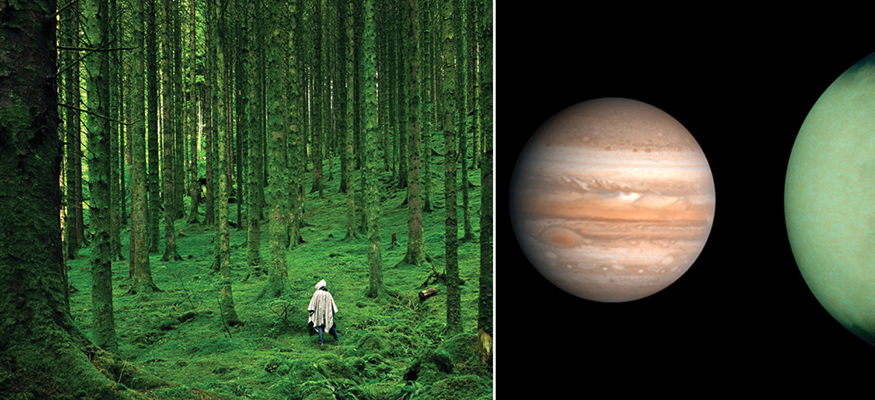
Science for All
Sex, Death, and Evolution
BIOL 103
Evolution is the conceptual foundation of the life sciences. The fundamental principles of evolutionary biology are simple, yet the field offers insights into real-world matters of life and death and sex. Designed for non-majors, this course provides a general overview of theoretical and empirical evolutionary biology.
Jon Herron, Biology
2 credits, NSc
The (Hi)Stories of Science
GLITS 315 A / CHID 220 A / C LIT 210 A
(listed by various course names)
The scientific enterprise has an enormous effect in the modern world across all sectors of life. How citizens and non-scientists in a given country understand its nature and purposes is crucial for the impact that it has. Discover the rich and complex relationship between science and literature from the seventeenth century to the present day, including how science circulates across society — in particular, how it gets told as stories — and what issues are at stake in formulating it in narrative terms.
Gary Handwerk, English
5 credits, A&H
The Planets
ASTR 150
Where did our solar system come from? What is it made of? This course, designed for liberal arts and beginning science students, is a survey of the planets of the solar system, with emphases on recent space exploration of the planets and on the comparative evolution of the Earth and the other planets.
Sophia Natalia Cisneros, Astronomy
5 credits, NSc, RSN
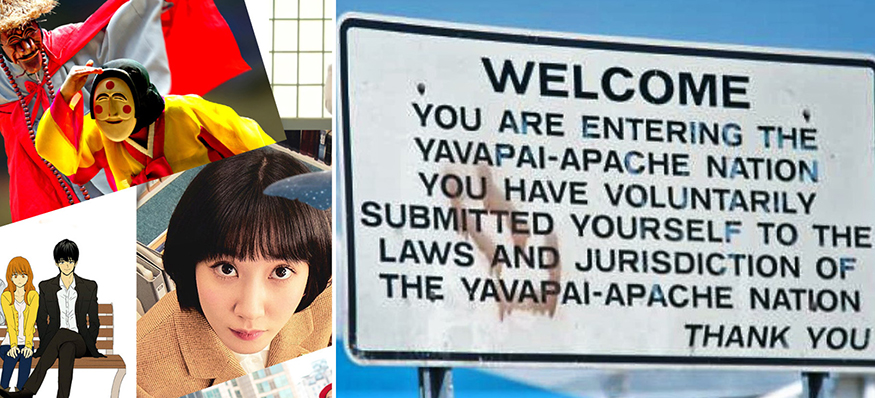
More Cool Courses
Viewing Korean Society through Humor
KOREAN 360
(listed as “Topics in Korean Literature and Culture”)
Through exploring popular media, this course will examine the cultural narratives in Korean society and how Korean artists use humor as entertainment, social critique, and a platform for highlighting controversial or taboo subjects. Students will also learn about the many functions of humor — psychological, sociological, philosophical, and dramatic — that can give greater insight into the shifting cultural, social, and historical contexts of Korea as well as other societies.
Emily Hall, Asian Languages & Literature
5 credits, A&H
American Indians & the Law
AIS 335
What is Native American sovereignty and how do tribes occupy a unique legal status in the US political system? Explore the parameters of tribal sovereignty, the federal-tribal trust relationship, and federal/tribal statutes that impact tribal governments. Students will analyze and discuss important legal cases, statutes, and historical material to comprehend the unique legal, political, and sovereign status of Native American tribes and to understand how laws and legislation impact Native people and their respective nations.
Charlotte Coté, American Indian Studies
5 credits, SSc, DIV
More Stories

AI in the Classroom? For Faculty, It's Complicated
Three College of Arts & Sciences professors discuss the impact of AI on their teaching and on student learning. The consensus? It’s complicated.

What Students Really Think about AI
Arts & Sciences weigh in on their own use of AI and what they see as the benefits and drawbacks of AI use in undergraduate education more broadly.

A "gesture" to jump-start careers
To prepare students for professional success, the UW College of Arts and Sciences offers “gesture,” a mock startup company where student interns gain skills that employers seek.
